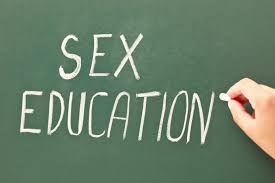Consent needs to be taught in classrooms

Sexual education should be an important part of every high school curriculum. The need to teach students about consent is evident with recent movements such as #metoo and the Kavanaugh investigation.
October 24, 2018
On the surface, Oregon, California, West Virginia, North Carolina, Vermont, New Jersey, Rhode Island and the District of Columbia appear to have nothing in common.
According to a 2018 CNN article, however, these are the only eight states in the country that require sexual education classes to mention consent in their curriculum.
With the #metoo movement and recent events such as the Kavanaugh hearing, it has become clear that sexual education needs to be an integral part of the school curriculum. Unlike home economics and other electives, health class is not a subject that school districts can brush aside in order to give academic subjects more instruction time.
According to a 2014 Planned Parenthood poll, 74 percent of parents tell their children that it is OK to decline sexual intercourse.
If children do not receive this important message at home, they should have the opportunity to learn it at school. Unfortunately, many of them will not hear this advice until it is too late.
Even for the children who learn about sex education at home, repetition of information is important in ingraining the lesson. Some children feel comfortable asking their teachers questions that they would not ask their parents as the classroom environment promotes different types of inquiry.
While most states currently lack strong sexual education programs, some recognize their mistakes and are attempting to make changes.
According to a 2018 CNN article, the governor of Md. recently approved a bill that requires schools to give age-appropriate lessons regarding consent. The requirement is expected to roll out during the 2018-2019 school year.
All in all, states are making the right move in updating their current sexual education programs or creating new ones in places that lack a formal curriculum. However, for the 44 states that currently do not require their curriculums to teach about consent, it may be time to approve a bill that mandates this.

